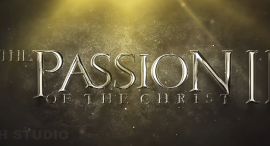
An ancient Hebrew lead tablet discovered in the 1980s on Mount Ebal, close to Nablus, has been successfully deciphered by an international team of experts using cutting-edge X-ray tomographic equipment. The hidden text, a formulaic curse, is written in a proto-alphabetic script that is thought to have been used in the Late Bronze Age, more than 200 years before any known Hebrew inscriptions in Israel.
'You Are Cursed by God'
According to the article in Jerusalem Post, Prof. Gershon Galil of the University of Haifa, a specialist in Jewish history and biblical studies, Scott Stripling of the Archaeological Studies Institute in Katy, Texas, Ivana Kumpova, Daniel Vavrik, and Jaroslav Valach of the Institute of Theoretical and Applied Mechanics at the Czech Academy of Sciences, and Pieter Gert van der Veen from the Department of Old Testament at the University of Twente conducted the research, which was published in
An excursion to Mount Ebal in 2019 led to the finding. The group wet-filtered debris from earlier excavations directed by the late Adam Zertal, a well-known but divisive archaeologist from the University of Haifa. From the east trash pile, the team discovered a small, folded lead tablet that included a waste matrix from two constructions that were thought to be altars and dated to the Late Bronze II and Iron Age I.
The inscription "You are cursed by the God," which has been decoded, provides an intriguing window into the religious and cultural customs of the area's early occupants. This critical discovery advances the timeline of previously discovered Hebrew inscriptions, giving scholars a more thorough grasp of the emergence of early Hebrew culture and language.
Also Read: Unearthed Tiny Gold Bible Mistaken For A Gift Shop Trinket Turns Out To Be 600-Year Piece Of History
How They Deciphered The Text
An Israeli-European study team's use of X-ray tomography has allowed them to decipher buried writing on a tiny, old Hebrew tablet. According to another source, US Today, unbelievably, the team was able to uncover the text using this non-intrusive technique without harming the artifact.
The tablet, which is a folded lead defixio measuring 2 by 2 cm and 0.3 cm thick, is thought to have come from an altar on Mount Ebal. It is believed that Joshua, Moses' successor, built an altar here when the Israelites were driven out of Egypt, giving this place a major place in biblical tradition.
The tablet, which had indentations and signs of writing on both the inside and outside, is thought to have been a component of the altars' infill. The relic was found after soil that had been dug up by the group led by the late archaeologist Adam Zertal was examined again. The crew also discovered pottery sherds, diagnostic flints, animal and floral remains, and other minor objects near the tablet.
The tablet's 48-letter inscription is thought to have been written somewhere in the late 13th century BC. However, other scholars contend it may be even older. According to the Jewish News Syndicate, the tablet's use of the Hebrew word for God also predates the oldest known instance in Israel by 500-600 years. The discovery might suggest an earlier date for the Exodus from Egypt. Further analysis and an international conference are expected.
Related Article:Extraordinary Discovery Made at Ancient Burial Site: Jesus' Midwife's Tomb Unearthed With Hundreds of Artifacts

















